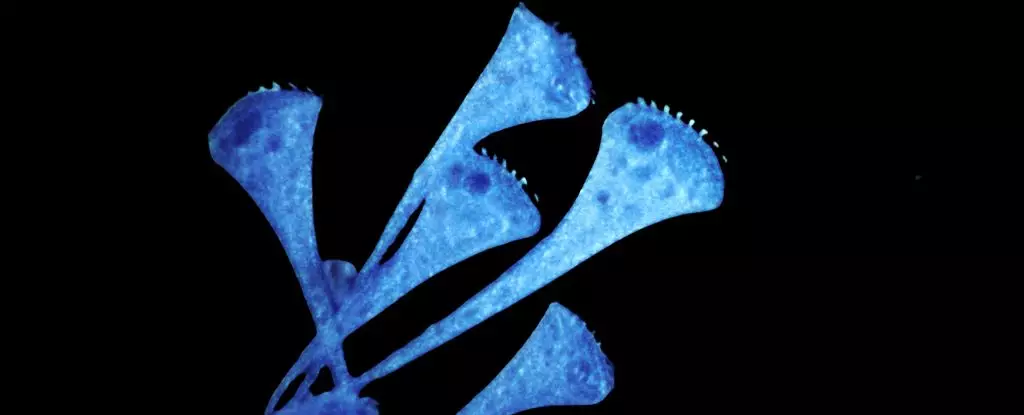Recent research has unveiled a remarkable capacity for learning at the cellular level, challenging our historical notions about intelligence being exclusive to organisms with complex nervous systems. This development suggests that even cells, which lack brains, display a capacity for a form of learning known as habituation. The implications of this discovery stretch far beyond mere curiosity; they could revolutionize our understanding of biology and lead to significant advancements in medical science.
Habituation is a fundamental psychological process characterized by a decrease in response to a recurring, non-rewarding stimulus. For instance, consider how humans may become desensitized to a persistent odor in their environment or how wild animals adapt to the presence of human onlookers. This process serves a critical role in survival, allowing organisms to allocate their attention and energy effectively. The study spearheaded by biologists, including Jeremy Gunawardena from Harvard Medical School, raises the intriguing question of how single-celled organisms can engage in this sophisticated form of processing.
Recent studies led by neurobiologist Lina Eckert at the Max Planck Institute employed sophisticated computer modeling to analyze the molecular networks within both mammalian cells and unicellular ciliates. They identified a fascinating characteristic: four specific molecular networks demonstrated dual-response mechanisms. In essence, one reaction could subside quickly while another lingered, which ultimately contributed to the cellular process of habituation. Such findings underscore the idea that responses to stimuli within even the simplest organisms are far more complex than previously understood.
As biologist Rosa Martinez observed, this suggests a rudimentary form of memory within cells, enabling them to react dynamically to stimuli while simultaneously influencing their future responses. These revelations, if verified in live cells, open a Pandora’s box of potential applications and questions regarding the nature of memory and learning far beyond the heady realms of multicellular organisms.
One of the most ambitious prospects lies in the potential for developing new strategies to combat cancer by harnessing this newfound knowledge of cellular habituation and memory. Current understanding posits that the immune system might become desensitized to cancer cells due to their constant presence, akin to how we adapt to irrelevant stimuli. If researchers can grasp how this cellular memory operates, it opens pathways to reprogram immune cells so they recognize and respond aggressively to tumors.
Gunawardena suggests that, should they decode the encoding mechanisms of this perceived ‘normalcy’ in immune cells, it might be possible to manipulate these cells, altering their perception of cancer cells from benign to malignant. This fantasy of effectively re-engineering immune responses could prove transformative for oncology, where resistance and habituation to cancer treatments are significant hurdles.
Eckert and her team’s research fits within a broader narrative, challenging age-old ideologies about intelligence and learning. Historically, discussions surrounding learning processes in organisms without brains have been contentious, often mired in philosophical debate rather than empirical evidence. Yet, as these scientific breakthroughs emerge, they redefine our understanding not just of cellular biology but of life itself.
As our conception of intelligence expands to include cellular organisms, it provokes a deeper inquiry into the nature of life, cognition, and learning. It forces us to reconsider where we draw the line between intelligent behavior and instinctive responses.
The research revealing the capacity for habituation at the cellular level heralds a new era in biological study. By understanding how such cellular networks operate, we stand on the brink of not only redefining our perspective on intelligence but also enabling groundbreaking medical advancements. The potential to influence immune responses and combat diseases like cancer illustrates the critical importance of this work, paving the way for inventive approaches that could save countless lives. As researchers delve deeper into the cellular enigma of learning and memory, the path ahead is rife with opportunity, beckoning exploration.


Leave a Reply